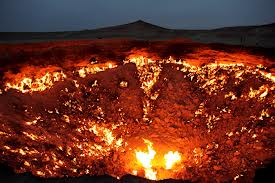HELL The Sentimental Secularism

HELL The Sentimental Secularism
This article was excerpted from Concise Theology: A Guide to Historic Christian Beliefs by J. I. Packer
HELL The sentimental secularism of modern Western culture, with its exalted optimism about human nature, its shrunken idea of God, and its skepticism as to whether personal morality really matters—in other words, its decay of conscience—makes it hard for Christians to take the reality of hell seriously.
Jesus talked about HELL so many times, trying to warn us, that if we do not live for him, and except Him as Our Personal Savior, and believe that he rose again from the dead, and shed his blood for us…..you cannot enter Heaven.
The revelation of hell in Scripture assumes a depth of insight into divine holiness and human and demonic sinfulness that most of us do not have.
However, the doctrine of hell appears in the New Testament as a Christian essential, and we are called to try to understand it as Jesus and his apostles did.
The New Testament views hell (Gehenna, as Jesus calls it, the place of incineration, Matt. 5:22; 18:9) as the final abode of those consigned to eternal punishment at the Last Judgment (Matt. 25:41-46; Rev. 20:11-15).
It is thought of as a place of fire and darkness (Jude 7, 13), of weeping and grinding of teeth (Matt. 8:12; 13:42, 50; 22:13; 24:51; 25:30), of destruction (2 Thess. 1:7-9; 2 Pet. 3:7; 1 Thess. 5:3), and of torment (Rev. 20:10; Luke 16:23)—in other words, of total distress and misery.
If, as it seems, these terms are symbolic rather than literal (fire and darkness would be mutually exclusive in literal terms), we may be sure that the reality, which is beyond our imagining, exceeds the symbol in dreadfulness.
New Testament teaching about hell is meant to appall us and strike us dumb with horror, assuring us that, as heaven will be better than we could dream, so hell will be worse than we can conceive.
Such are the issues of eternity, which need now to be realistically faced. The concept of hell is of a negative relationship to God, an experience not of his absence so much as of his presence in wrath and displeasure.
The experience of God’s anger as a consuming fire (Heb. 12:29), his righteous condemnation for defying him and clinging to the sins he loathes, and the deprivation of all that is valuable, pleasant, and worthwhile will be the shape of the experience of hell (Rom. 2:6, 8-9, 12).
The concept is formed by systematically negating every element in the experience of God’s goodness as believers know it through grace and as all mankind knows it through kindly providences (Acts 14:16-17; Ps. 104:10-30; Rom. 2:4).
The reality, as was said above, will be more terrible than the concept; no one can imagine how bad hell will be. Scripture envisages hell as unending (Jude 13; Rev. 20:10). Speculations about a “second chance” after death, or personal annihilation of the ungodly at some stage, have no biblical warrant.
Scripture sees hell as self-chosen; those in hell will realize that they sentenced themselves to it by loving darkness rather than light, choosing not to have their Creator as their Lord, preferring self-indulgent sin to self-denying righteousness, and (if they encountered the gospel) rejecting Jesus rather than coming to him (John 3:18-21; Rom. 1:18, 24, 26, 28, 32; 2:8; 2 Thess. 2:9-11).
General revelation confronts all mankind with this issue, and from this standpoint hell appears as God’s gesture of respect for human choice. All receive what they actually chose, either to be with God forever, worshiping him, or without God forever, worshiping themselves. Those who are in hell will know not only that for their doings they deserve it but also that in their hearts they chose it.
The purpose of Bible teaching about hell is to make us appreciate, thankfully embrace, and rationally prefer the grace of Christ that saves us from it (Matt. 5:29-30; 13:48-50). It is really a mercy to mankind that God in Scripture is so explicit about hell. We cannot now say that we have not been warned. This article was excerpted from Concise Theology: A Guide to Historic Christian Beliefs by J. I. Packer.
![]()